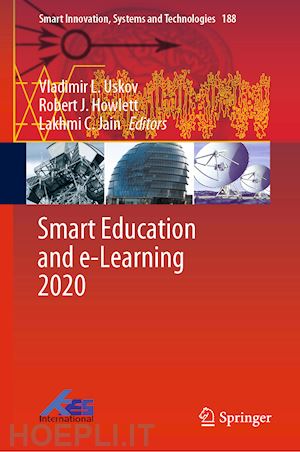Dr. Vladimir Uskov is a Professor of Computer Science and Information Systems and Director of the InterLabs Research Institute at Bradley University. He obtained his Ph.D. and M.Sc. in Computer Science from Moscow Aviation Institute – Technical University, Russia. He has previously worked at the University of Cincinnati and Michigan State University (USA), Moscow State Technical University and Moscow Aviation Institute – Technical University (Russia), and various other universities in Japan, Italy, Germany, the Netherlands and France. His current research is focused on engineering of software/hardware systems and tools for Smart University, Smart Education, Smart Classroom and design of innovative teaching and learning strategies for highly technological Smart Pedagogy. He has published 3 textbooks, 5chapter books and more than 330 papers in international journals and conference proceedings.
Dr. Robert Howlett is the Executive Chair of KES International, a non-profit organization that facilitates knowledge transfer and the dissemination of research results in areas including intelligent systems, sustainability and knowledge transfer. He is a Visiting Professor at Bournemouth University in the UK. His technical expertise is in the use of intelligent systems to solve industrial problems. He has been successful in applying artificial intelligence, machine learning and related technologies to sustainability and renewable energy systems; condition monitoring, diagnostic tools and systems; automotive electronics and engine management systems. His current research work is focused on the use of smart microgrids to achieve reduced energy costs and lower carbon emissions in areas such as housing and protected horticulture.
Dr. Lakhmi C. Jain, Ph.D., M.E., B.E. (Hons), Fellow (Engineers Australia), is with the University of Technology Sydney, Australia, and Liverpool Hope University, UK. Professor Jain serves the KES International for providing a professional community the opportunities for publications, knowledge exchange, cooperation and teaming. Involving around 5,000 researchers drawn from universities and companies worldwide, KES facilitates international cooperation and generates synergy in teaching and research. KES regularly provides networking opportunities for professional community through one of the largest conferences of its kind in the area of KES.











